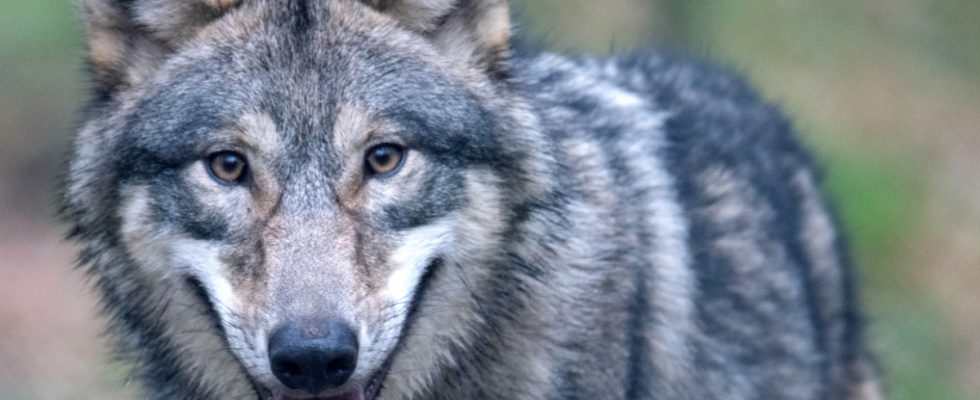Nine days after the announcement by Prime Minister Markus Söder (CSU), the state government decided that wolves in Bavaria would be easier to shoot down in the future. “One crack is enough,” said Söder on Tuesday after the cabinet meeting. As soon as a wolf has killed a farm animal, it should be possible to shoot it down. Also, the attacking animal no longer needs to be identified. “Now you can generally remove the wolves from the region,” said Söder.
Deputy Prime Minister and Economics Minister Hubert Aiwanger (free voters) emphasized that “the wolf must be regulated”. He threatens “free-range animal husbandry and thus the cultural landscape and the biodiversity in many regions of Bavaria, which are existential for agriculture as well as for tourism”. Incidents like the deadly bear attack in Trentino are unacceptable, “they threaten not only human and animal lives but also tourism”.
The Bund Naturschutz (BN) sharply criticized and announced a lawsuit. “The new regulation breaks European and German nature conservation law,” said BN boss Richard Mergner. “We will not accept that.” At the same time, Mergner spoke of “a fatal signal” from the state government to the farmers. With the new regulation, Söder makes them believe that “fences and other livestock protection measures are not necessary”. That will have a bitter revenge.
The Green politician Ludwig Hartmann accused Söder of “selling the people in the country – and especially the alpine farmers – for fools”. At the same time, he predicted that the new regulation “will fail in every court”. But the prime minister is not interested in “whether he can really help Bavarian animal owners with his actionist approach.” The main thing for him is “that he once again dominates the headlines”.
The farmers are happy “that the state government is taking our concerns seriously”
The farmers’ association reacted with relief. “We are pleased that the state government is taking our concerns seriously,” said Ralf Huber, President of Upper Bavaria. “The immigration of wolves threatens the grazing of cattle and sheep on the alpine pastures.” The farmers’ association has long repeated like a mantra that many farmers will give up their alpine pastures if wolves resettle permanently in the mountains.
The new “Bavarian Wolf Ordinance” comprises only four paragraphs. The first is headed “Protection of people and public safety”, it provides for the shooting of wolves who, for example, “repeatedly approach people outside of vehicles to less than 30 meters” or “over several days within a radius of less than 200 meters from built-up areas or buildings or stables used by people”.
Paragraph two is the counterpart to this for alpine and alpine pastures on which sheep and other livestock cannot be protected against wolf attacks because the state government believes the pastures are too steep for a fence or the terrain is generally too impassable. In the future, it should be enough for a wolf to be shot down if it kills a sheep, goat or other livestock. Paragraph two is headed with the words “Prevention of serious economic damage”.
In the future, the district offices will be responsible
According to Söder, the lower nature conservation authorities (UNB) at the district offices should be responsible for killing wolves in the future, both in terms of arranging the kills and selecting the hunters. However, the carcasses of the wolves killed must be delivered to the State Office for the Environment (LfU). According to paragraph four, the ordinance will come into force on May 1, 2023, as Söder announced last week.
According to the BN, the new regulation is not worth the paper it is written on. And in many ways. Therefore, BN boss Mergner was confident that the courts will collect the new regulation quickly. One reason Mergner named was that the provisions were too general and abstract. It is not automatically a danger to people’s life and limb if a wolf approaches them at less than 30 meters or can be seen repeatedly in the vicinity of towns or farmsteads.
But that’s not all. The state government should not delegate the decision on any wolf shooting to the nature conservation authorities at the district offices. “With all due respect to the employees of the UNB,” said the BN boss. “That goes beyond their competence and contradicts all the requirements of the nature conservation laws.”

